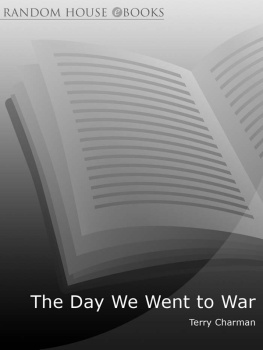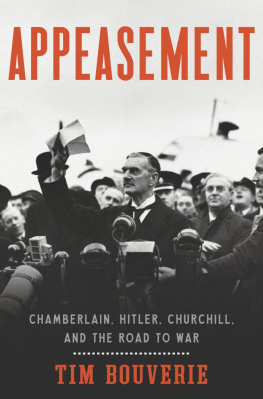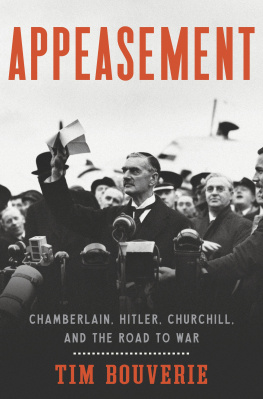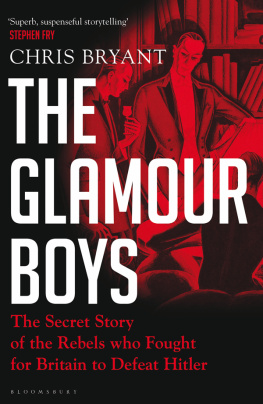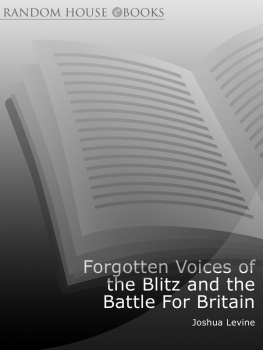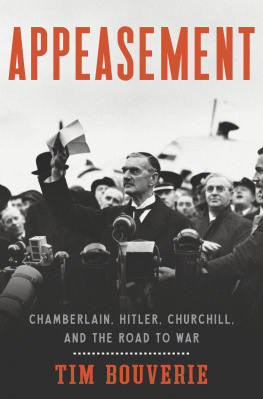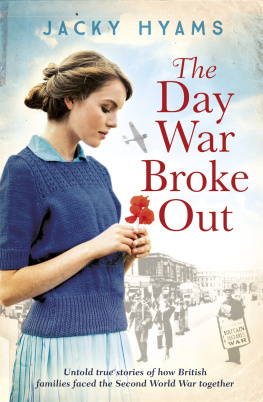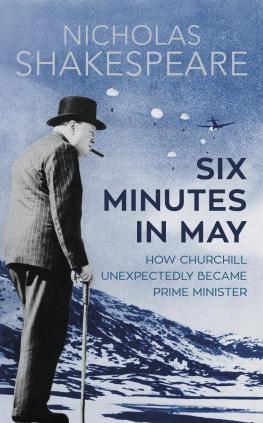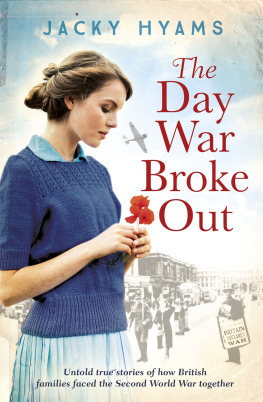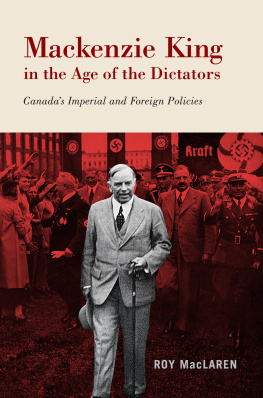The Day We Went to War
Terry Charman

This eBook is copyright material and must not be copied, reproduced, transferred, distributed, leased, licensed or publicly performed or used in any way except as specifically permitted in writing by the publishers, as allowed under the terms and conditions under which it was purchased or as strictly permitted by applicable copyright law. Any unauthorised distribution or use of this text may be a direct infringement of the authors and publishers rights and those responsible may be liable in law accordingly.
Version 1.0
Epub ISBN 9780753537787
www.randomhouse.co.uk
2 4 6 8 10 9 7 5 3 1
Published in 2010 by Virgin Books, an imprint of Ebury Publishing
A Random House Group Company
First published in the UK by Virgin Books in 2009 with the title Outbreak 1939
Unless otherwise stated photographs and text The Trustees of the Imperial War Museum
2009
Foreword Melvyn Bragg
The poster Take Your Gas Mask Everywhere is reproduced with kind permission of RoSPA
(The Royal Society for the Prevention of Accidents)
The television programme Outbreak is an ITV Studios Production for ITV,
History Channel and France 3 in association with the Imperial War Museum
and ECPAD ITV Studios Ltd 2009
Extract on pages 142143 Daily Express
Terry Charman has asserted his right under the Copyright, Designs and Patents Act 1988 to be identified as the author of this work
This book is substantially a work of non-fiction. The author has stated to the publishers that, except in some minor respects not affecting the substantial accuracy of the work, the contents of this book are true
All rights reserved. No part of this publication may be reproduced, stored in a retrieval system, or transmitted in any form or by any means, electronic, mechanical, photocopying, recording or otherwise, without the prior permission of the copyright owner
Every reasonable effort has been made to contact copyright holders of material reproduced in this book. If any have been inadvertently overlooked the publisher would be glad to hear from them and make good in future editions any errors or omissions brought to their attention
The Random House Group Limited Reg. No. 954009
Addresses for companies within the Random House Group can be found at www.randomhouse.co.uk
A CIP catalogue record for this book is available from the British Library
The Random House Group Limited supports The Forest Stewardship Council [FSC], the leading international forest certification organisation. All our titles that are printed on Greenpeace-approved FSC-certified paper carry the FSC logo. Our paper procurement policy can be found at www.rbooks.co.uk/environment

Typeset in Sabon by Palimpsest Book Production Limited, Grangemouth, Stirlingshire Printed and bound by CPI Bookmarque Ltd, Croydon CR0 4TD
ISBN 9780753519653
To buy books by your favourite authors and register for offers visit www.rbooks.co.uk
C ONTENTS
To James Taylor
The Day We Went to War
T ERRY C HARMAN is the Senior Historian at the Imperial War Museum, where he has worked since 1974. He is a frequent lecturer on the First and Second World Wars and has contributed to magazines and journals on a range of subjects. He has also worked as a consultant for a wide range of publications and has appeared on and been associated with numerous documentaries, television and radio programmes and films, including Foyles War and Schindlers List. He is the author of The German Home Front 19391945.
By the Same Author
The German Home Front 19391945

Unless we heard from them by eleven oclock that they were prepared at once to withdraw their troops from Poland, a state of war would exist between us. Neville Chamberlain, 3 September 1939.
F OREWORD
I just missed the start of the Second World War. On Sunday, 3 September 1939 I was not quite ready for landing. That happened on 6 October. Nevertheless the war was the landscape and currency of my childhood its background noise, its daily prayers, the atmosphere of life both at that time and in some ways forever since.
Windows were blacked out nightly to give the German bombers no chink of light and even we children staggered rather drunkenly around the twisting alleys of the small town with weak pencil torches nervously flashed on and off but always pointed downwards. Rationing ruled the kitchen. Stories of war were our daily bread and games of war our childhood antidote. The wireless was the altar and news bulletins the daily service. It was a time when children conceived violent hatreds of nations and peoples they knew nothing of, when no propaganda was too black and yet the greatest tragedy of all was to take my own experience not even whispered in the streets. We did not know the depth of evil out there.
There were outings now and then, mainly to the seaside, to Silloth ten miles away, and the churches filled in social gaps with gaslit youth clubs. There would be dances in the blacked-out basement of a Congregational church where women, often in coats against the cold, danced with women or taught their children the steps of old ballroom dances.
And there were treats. Children whose fathers were in the war got a present now and then from sympathetic families doing their bit and felt very special because of it.
I lived in north Cumbria in the north-west of England, a borderland near Hadrians Wall, a place both ruined and ripened in wars over the centuries Romans, Vikings, Normans and in the Middle Ages 300 years of reiving border warfare with the Scots.
Then came the imperial wars with local regiments called up in heavy numbers to plant and to defend the flag. My grandfather and five of his brothers went through the First World War. My father and three of his brothers were in the Second.
Where I lived was involved in battles in the air not because it was on the aerial frontline but because it was so far from it. Fractured aeroplanes hedge-hopped from the south-east of England to a place thought to be out of range and out of sight of the German bombers. They were turned around and sent back south into battle.
There were soldiers marching even in this small market town, Wigton, population 5,000. There were morale-boosting marches when the music played and little boys ran alongside in the gutters. There were soldiers and sailors and airmen on leave with the occasional story of combat and horror but those were tight-lipped days. And there were the casualties to men from the town and, early on, the growth of fear as the defeats could not be concealed and towards the end the birth of an even greater bottomless fear as the atom bomb entered into history.
And so when I realised that the seventieth anniversary of World War Two was all but on us, there were hundreds of iron filings which rushed to that magnet of the war in my past. You only rarely have a complete idea immediately. This was one of them.
I wanted to make a television programme about the day the Second World War broke out, the very day. To track through that day, to show what happened here in my own country and also in France, Germany, Poland, Australia, America, the Commonwealth and elsewhere. The proposition was accepted by ITV for an hour-long documentary.

